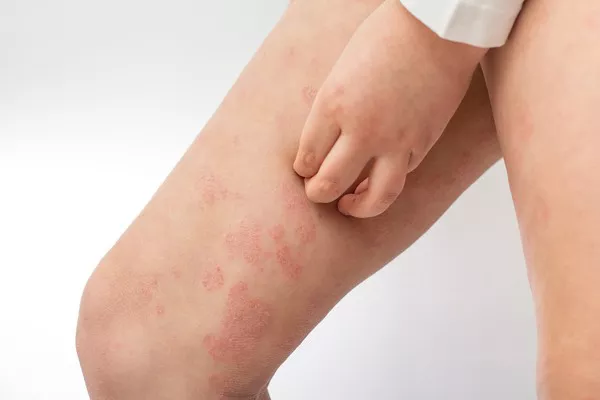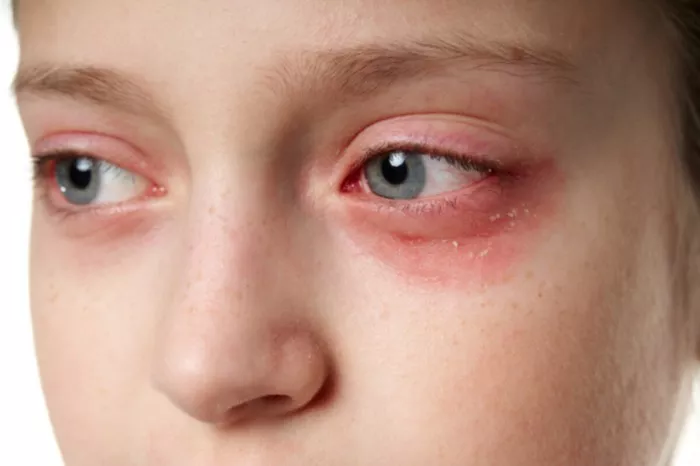Eczema is a common skin condition that causes the skin to become red, inflamed, and itchy. While it may not always be possible to completely eliminate eczema in just one week, there are several strategies and treatments that can significantly reduce symptoms, soothe the skin, and promote healing. If you’re looking for ways to manage eczema and see noticeable improvements within a week, this article will guide you through various steps to relieve symptoms quickly.
Understanding Eczema
Eczema, also known as atopic dermatitis, is a chronic skin condition that causes the skin to become dry, itchy, and inflamed. It often appears on the face, hands, and inside the elbows and knees. Eczema is triggered by various factors, including allergens, irritants, changes in temperature, and stress. The condition can flare up suddenly and worsen without proper care.
Identifying Eczema Triggers
The first step in managing eczema is identifying what triggers the flare-ups. Common eczema triggers include:
- Allergens like pollen, pet dander, or mold
- Irritants such as certain soaps, detergents, or fabrics like wool
- Dry skin caused by cold weather or hot, dry air
- Stress which can worsen symptoms
- Dietary triggers including spicy foods, dairy, or gluten
- Sweating or prolonged exposure to moisture
By understanding and avoiding your specific triggers, you can reduce the frequency and severity of eczema flare-ups. Keeping a journal to track your symptoms and potential triggers can help you identify patterns and make necessary lifestyle changes.
Step 1: Moisturize the Skin Frequently
One of the most effective ways to control eczema is by keeping your skin well-moisturized. Eczema causes the skin to lose moisture, making it more prone to dryness and irritation. Applying a thick, fragrance-free moisturizer regularly helps to create a barrier that locks in moisture and prevents the skin from drying out.
- Use a heavy moisturizer like petroleum jelly, shea butter, or an ointment-based lotion. These products provide better hydration than lighter creams or lotions.
- Apply moisturizer immediately after taking a bath or shower, while your skin is still damp. This helps to seal in moisture.
- Reapply the moisturizer throughout the day, especially if your skin feels dry or tight.
Step 2: Take Short, Lukewarm Showers
Hot showers or baths can strip the skin of its natural oils, making eczema worse. To avoid further irritation, take lukewarm showers that are no longer than 10-15 minutes. Here’s how to make the most of your shower:
- Use a gentle, fragrance-free soap or body wash. Harsh soaps can irritate the skin and strip away essential oils.
- Avoid scrubbing your skin with a washcloth or sponge. Gently cleanse with your hands to prevent friction.
- After showering, pat your skin dry with a soft towel, rather than rubbing it. This will prevent irritation.
By maintaining the right water temperature and avoiding harsh soaps, you help protect the skin’s natural barrier.
Step 3: Apply Anti-Inflammatory Creams
Topical treatments are one of the most effective ways to manage eczema. Anti-inflammatory creams, such as corticosteroids, can reduce redness, swelling, and itching. Over-the-counter hydrocortisone creams are available for mild eczema, but if your eczema is more severe, you may need a stronger prescription steroid cream.
- Apply the cream to affected areas as directed by your doctor or pharmacist.
- Be careful not to overuse steroid creams, as they can cause thinning of the skin when used for long periods.
- For mild cases, try natural anti-inflammatory options, such as aloe vera gel or chamomile cream, which can soothe irritated skin.
Using anti-inflammatory treatments as part of your daily skincare routine can help reduce the appearance of eczema and speed up the healing process.
Step 4: Use Wet Wrap Therapy
Wet wrap therapy is a technique used to hydrate and soothe the skin, especially during eczema flare-ups. This method involves applying a moisturizer or topical medication to the skin and then covering it with damp bandages or cloths. Wet wraps help to lock in moisture, enhance the effects of medications, and prevent scratching.
- After applying your moisturizer or steroid cream to affected areas, soak a soft cloth or bandage in lukewarm water.
- Wring out the cloth so it’s damp, but not dripping wet.
- Wrap the damp cloth over the treated skin and then cover it with a dry cloth or layer of clothing.
- Leave the wet wrap in place for 20-30 minutes to allow the moisturizer to deeply penetrate the skin.
Wet wrap therapy can be especially beneficial before bedtime, as it helps you avoid scratching while you sleep.
Step 5: Avoid Scratching the Affected Areas
Scratching eczema can make the condition worse by irritating the skin further and causing infection. It’s important to resist the urge to scratch, even though the itching may be intense.
Here are some tips to help control itching:
- Keep nails trimmed to reduce damage if you do scratch.
- Wear cotton gloves at night to prevent scratching during sleep.
- Use cold compresses on itchy areas to numb the sensation and reduce inflammation.
- Consider wearing loose, soft clothing to prevent friction from irritating the skin.
By managing the urge to scratch, you allow the skin to heal more effectively and prevent secondary infections.
Step 6: Manage Stress
Stress can play a significant role in triggering eczema flare-ups or making existing symptoms worse. Finding ways to manage stress can help improve eczema symptoms. Some techniques to reduce stress include:
- Meditation or deep breathing exercises to relax the mind and body.
- Regular physical activity such as walking, yoga, or swimming, which can help reduce stress and improve overall skin health.
- Adequate sleep to allow your body and skin to rest and regenerate.
- Journaling or talking to a therapist to manage emotional stress.
By incorporating stress-relieving activities into your daily routine, you can prevent flare-ups and promote better skin health.
Step 7: Adjust Your Diet
Certain foods can contribute to eczema flare-ups. While food triggers vary from person to person, some common culprits include dairy, gluten, soy, and spicy foods. Reducing or eliminating these from your diet may help relieve symptoms.
- Try an anti-inflammatory diet rich in fruits, vegetables, and omega-3 fatty acids (found in fish like salmon, walnuts, and flaxseeds).
- Drink plenty of water to stay hydrated and help your skin stay moisturized.
- Avoid processed foods and limit sugary foods, as they can contribute to inflammation in the body.
Keeping track of foods that worsen your eczema can help you identify dietary triggers and make healthier choices.
Step 8: Avoid Irritants and Harsh Chemicals
Certain irritants and chemicals can make eczema worse by stripping the skin’s natural moisture. To protect your skin:
- Use fragrance-free and dye-free products, such as soaps, laundry detergents, and skincare products.
- Avoid harsh chemicals and cleaning products that may irritate your skin.
- Choose soft, breathable fabrics like cotton over wool or synthetic materials that can cause friction and irritation.
By eliminating these potential irritants, you can help your skin heal more quickly and reduce the likelihood of eczema flare-ups.
Step 9: Seek Professional Medical Treatment
If your eczema does not improve with home care or if it worsens, consult a healthcare professional. Your doctor may recommend prescription treatments, such as stronger corticosteroids, immune-suppressing medications, or other specialized creams to address the condition.
- Your doctor might also perform tests to identify any underlying allergies or infections that could be contributing to your eczema.
- In some cases, light therapy (phototherapy) or biologic injections may be recommended for severe eczema.
A healthcare provider can help tailor a treatment plan that’s specific to your needs and ensure your eczema is managed effectively.
Conclusion
While it may not be possible to completely eliminate eczema in just one week, by following these steps, you can significantly reduce inflammation, control itching, and promote healing. Moisturizing frequently, avoiding triggers, using anti-inflammatory treatments, and managing stress are key strategies for improving eczema symptoms. Remember, eczema is a chronic condition, and while flare-ups can be controlled, ongoing care and attention are necessary for long-term skin health. If your symptoms persist or worsen, don’t hesitate to consult a doctor for further treatment options.
Related topics:


























